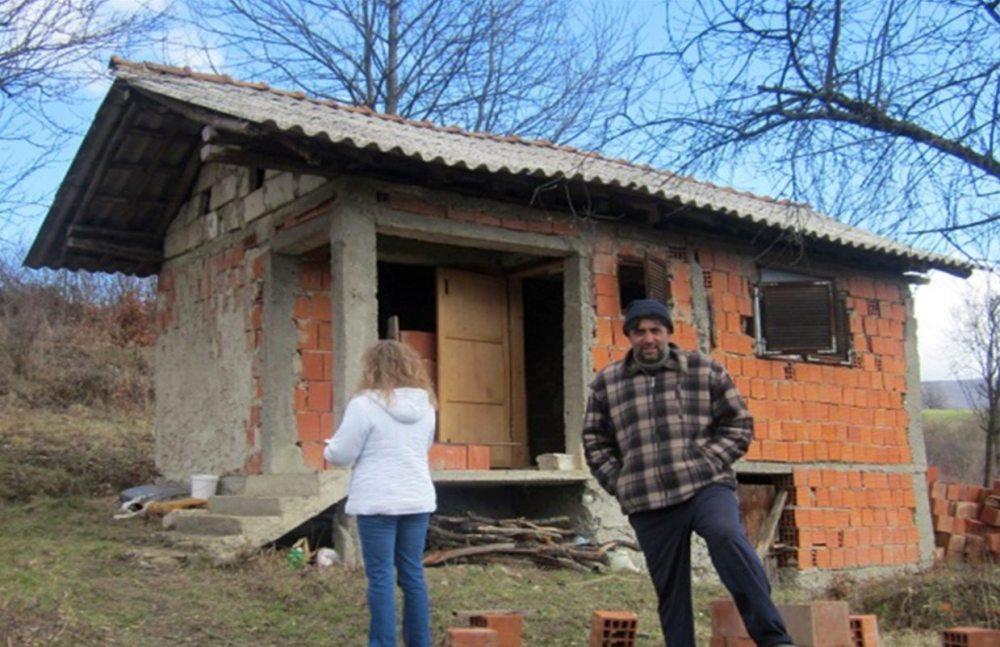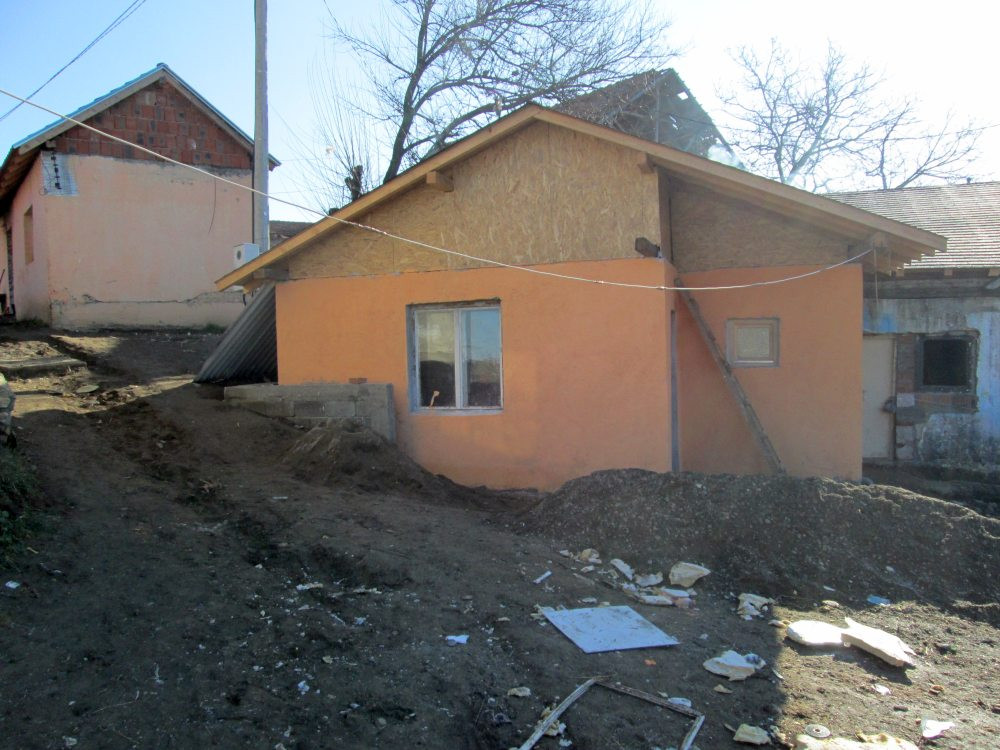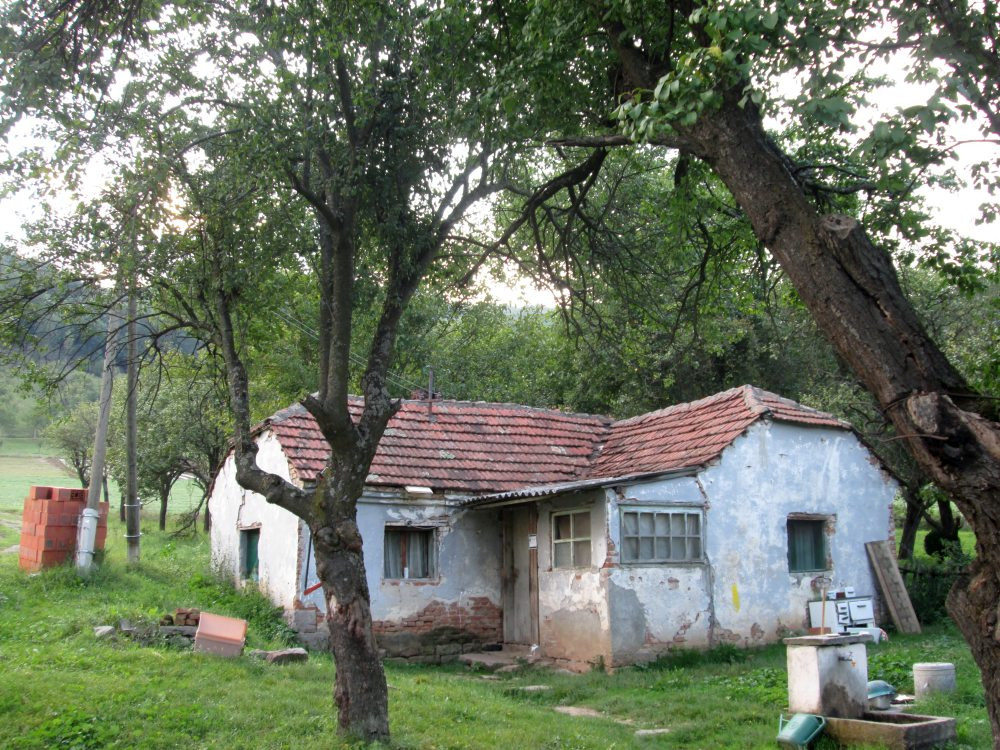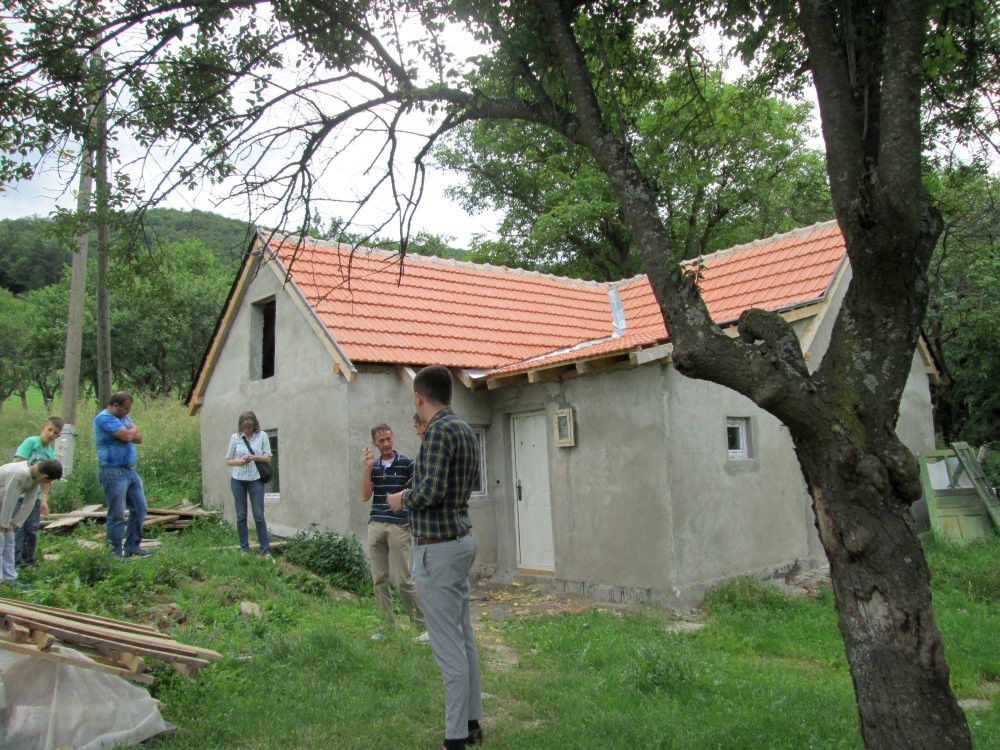EHO presented a successfully realized housing support model in Brussels for the Serbia's socially vulnerable
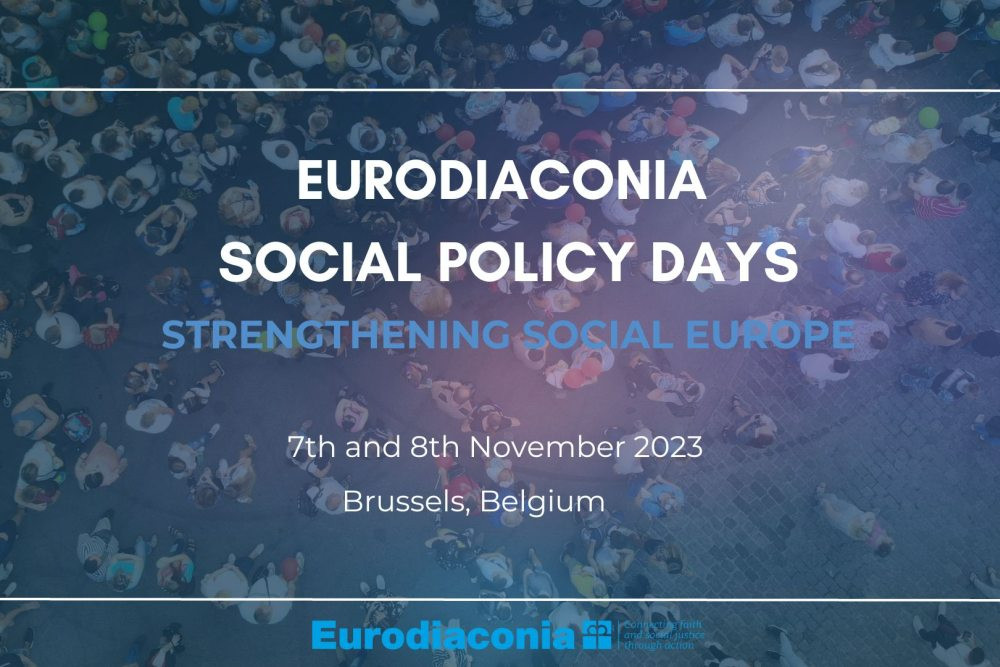
13. Nov 2023.
Solid bathrooms to replace mud and straw lavatories
In 27 local governments in Serbia, in 104 settlements, living conditions were improved, 1,268 houses were repaired, 80 houses were reconstructed, and 37 houses and 55 social apartments were newly built.
Over 6,000 socially vulnerable people in 27 municipalities in Serbia, who until now lived in houses made of mud and straw, today, thanks to the Ecumenical Humanitarian Organization (EHO), live in legalized houses, in homes with water, electricity and a bathroom.
The way in which this undertaking was realized - the DDM model of housing support as one of the models for improving the housing and living conditions of the socially vulnerable population - EHO coordinator Slađana Jovanović presented recently in Brussels at the Eurodiaconia Social Policy Days.
The gathering was organized by Eurodiaconia on November 7 and 8 this year, and the event brought together members and representatives of European institutions and partner organizations.
Ways to improve housing conditions, desegregation and Roma access to the right to adequate housing are presented. The housing support model that EHO has been implementing in Serbia since 2008 is presented as an example of good practice and one of the ways to improve poor living conditions in substandard settlements where members of the Roma community predominantly live. The model was developed with the aim of including Roma in the processes of improving housing and living conditions in Serbia.
The project "Renovation of substandard settlements based on the needs of their inhabitants" (Eng. Dweller Driven Upgrading of Roma Settlements - DDM), aims to support the vulnerable, is based on the principles of respect for human rights and uses an effective multi-sector approach, tried and applied in the Republic of Serbia since by the Ecumenical Humanitarian Organization and the Swiss partner organization HEKS/EPER.
The essence of this type of aid model is to listen and hear the needs of people from the community being helped, and to include the local self-government in the entire work. It has been shown that only such an approach, with the involvement of decision-makers in the entire project, enables the effective implementation of the plan. This is confirmed by really large and significant results. It all started 15 years ago with the priority task of legalizing the houses that had been built illegally in many settlements throughout Serbia where the Roma predominantly live. Then came the construction of water supply and sewerage, after which, with support in construction materials, the reconstruction of existing houses followed. or construction of new houses and apartments.
That this kind of model is not only possible, but also effective is confirmed by the enviable results - in 27 local governments in Serbia, in 104 settlements, living conditions were improved, 1268 houses were repaired and bathrooms were built, 80 houses were reconstructed, and 37 smaller houses were newly built and 55 social apartments. With this, life was greatly improved, and 6260 people were undoubtedly happy.
It is important to emphasize that this way of working, in which, above all, the needs of the community are listened to and respected, is unique, and EHO is a leader in its application. It implies that the owners, neighbors and craftsmen from the local community are involved in the repair, reconstruction, or construction of houses and apartments. They work side by side with professional craftsmen hired by EHO, which achieves additional results for the benefit of the property, as well as the entire community. People get trained, learn various trades, which in the future often becomes their new trade and a constant source of income. In addition, the owner is additionally loved and caressed, and feels a greater attachment to the home, in the decoration and construction of which he participates.
All these reasons made the presented model DDM model of housing support for the improvement of housing and living conditions of the socially vulnerable population, to receive congratulations and great support in Brussels, and most importantly, to hope that the project will continue in the future.
Slađana Jovanović, EHO project coordinator
